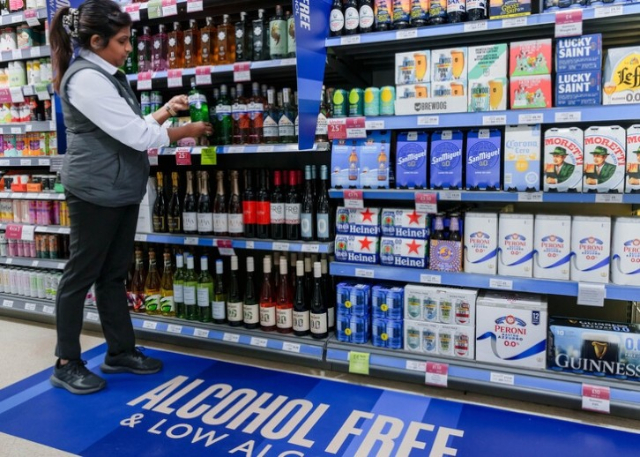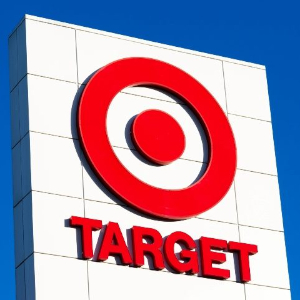Why are checkout clerks at Target stores being told to ‘card’ purchasers of non-alcoholic beverages? On its face, the move makes no sense at all. But Target does have an explanation – based on its perception of customers’ ‘intentions’…

Dedicated sales spaces for non-alcoholic bevs are beginning
to pop up as a solution to consumer confusion…
Being asked for identification to prove we’re of legal drinking age is a procedure all alcohol-consuming adults in the western world are used to. But many people are asking why purchasers of non-alcoholic beverages are being carded by Target cashiers.
A quirky custom
So accustomed to carding are we here in Canada (and I presume in the US, as well), that the ritual has taken on a wide range of emotional and social colours. Not long ago, I was in line at a bottle shop behind two other ladies.
The gal in front of me was about my age (I estimated). The gal in front of her was definitely on the young side. Call her a ‘blushing co-ed’. The co-ed was asked for ID and did a lot more than blush. She was downright humiliated; reduced to stuttering. And almost in unison, the middle gal and I both burst out, “Hey! Card ME! Make my day!”
Neither of us was likely to be mistaken for an underage purchaser. But it would have been a nice compliment to be asked for proof we were old enough to drink!
Seriously, though…
Since the laws eased enough to allow sales of beer and wine at grocery stores in mjy h9me jurisdiction, carding procedures have varied somewhat from venue to venue. At most supermarkets I am passed right through without question. But at one, as a matter of corporate policy, all would-be booze purchasers are asked for proof of age. No store now allowed to sell lucrative alcoholic beverages wants to be banned for a slip of protocol.
Carding for non-alcoholic drinks?
So I can sort of see why Target has instituted its ‘card everybody’ policy for all drinks that even look like alcohol.
“Target faces the dilemma of distinguishing which of the […] drinks on its shelves must be sold to 21+ and which can be sold to anyone. It’s not an impossible problem, but there’s a considerable degree of liability that follows even a single violation,” explains Nicholas Bradley, a business attorney based in New York City.
“From the perspective of a big retail chain with multiple locations and hundreds of employees in New York City alone, the safest move is to be over-inclusive and to require ID for all ‘non-alcoholic’ beverages, even if that specific brand genuinely has no alcohol.”
Targeting and intent
Target’s carding policy is based on the company’s perception of who nonalcoholic beverages are for — and why they are typically purchased — reinforces a growing consensus that’s backed by data. In fact, some estimates say up to 90 percent of non-alcohol beverage buyers are adult alcohol drinkers practicing moderation.
The problem with selling alcoholic and non-alcoholic drinks together in the same aisle at a store is that some customers will mistake alcoholic libations for non-alcoholic ones and not realize it until they’re carded at the checkout. There’s also the potential for checkout clerks to mistake one kind of beverage for the other when scanning them through.
By carding everyone for everything, Target is trying to make its system bullet-proof.
My take
As I hinted earlier, I can understand why Target is going with a ‘zero tolerance’ policy for carding.
Let me also note, to be fair, that the Target carding ‘model’ has also been adopted by other large retailers. Albeit, a distinct minority.
But I really don’t think they needed to go that far to give a significant subgroup of their customers – older ladies who bend their elbows now and then – an ego boost at the checkout…
~ Maggie J.

